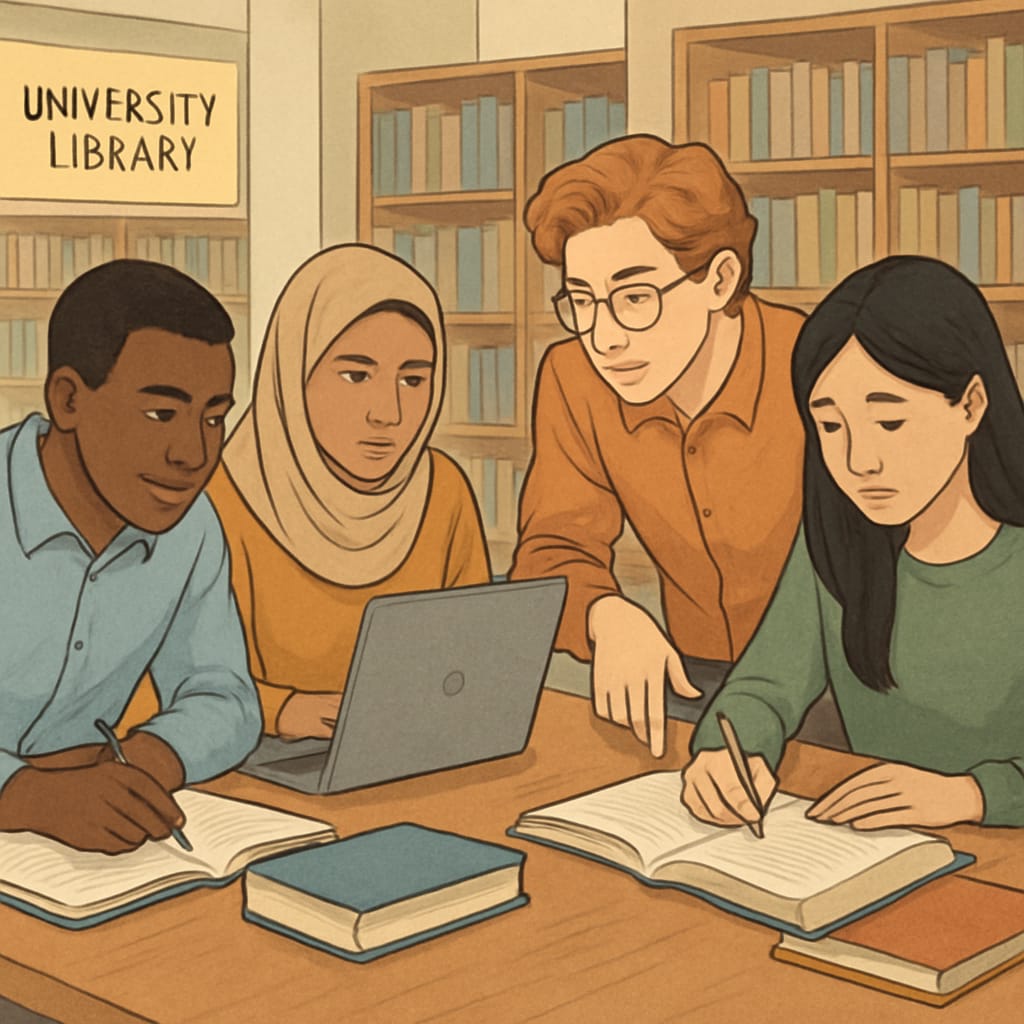For many immigrant students in the United Kingdom, pursuing higher education at prestigious institutions such as Oxford University is an aspiration fraught with significant economic obstacles. The combination of international student fees and restrictive immigration policies often creates a financial burden that limits access to academic opportunities. This article delves into the systemic inequities faced by immigrant students, focusing on their struggles with costly tuition fees and immigration regulations, while also proposing reforms for a fairer education system.
Economic Barriers in Higher Education
Immigrant students with limited leave to remain in the UK often face challenges beyond just adapting to a new culture. A key barrier is the categorization of such students as international applicants, which subjects them to much higher tuition fees compared to their domestic counterparts. For example, tuition fees for international students at Oxford University can exceed £30,000 annually, an amount that is unaffordable for many families who have recently migrated. As a result, these students are often excluded from opportunities to access world-class education.
In addition, immigrant students frequently encounter difficulties accessing loans or scholarships, which are typically reserved for UK citizens or permanent residents. This lack of financial support exacerbates their struggles and forces many talented individuals to abandon their educational aspirations. The disparity in access to resources highlights a broader issue of systemic inequity within the education system.

A Case Study: The Nigerian Student Experience
Consider the story of Ada, a Nigerian immigrant student who aspired to study engineering at Oxford University. Despite excelling academically and meeting all admission criteria, Ada was categorized as an international student due to her limited immigration status. This classification meant she had to pay international tuition fees, which her family could not afford. Ada applied for multiple scholarships but was rejected because most funding opportunities were reserved for domestic students or permanent residents.
Ada’s experience is not unique. Thousands of immigrant students in the UK face similar economic barriers, often forcing them to reconsider their educational goals or opt for less expensive institutions with fewer resources. This loss of talent not only impacts the students but also deprives the UK of diverse perspectives and innovation that could benefit the nation as a whole.

Systemic Inequities and the Need for Reform
The intersection of immigration and education policies in the UK creates a significant hurdle for immigrant students. Current regulations often fail to account for the unique circumstances of individuals who have lived in the UK for years but do not hold permanent residency. As a result, these students are unfairly categorized as international applicants, subjecting them to financial challenges that domestic students do not face.
To address these inequities, several reforms could be implemented:
- Revising fee structures: Immigrant students who have lived in the UK for an extended period should be eligible for domestic tuition rates, regardless of their immigration status.
- Expanding scholarship opportunities: Universities and government programs should create funding options specifically targeted at immigrant students to ensure equitable access to education.
- Streamlining residency pathways: Policies should be adjusted to allow long-term immigrant students to gain permanent residency more easily, enabling them to access financial support and reduced tuition fees.
Implementing these measures would not only help immigrant students but also contribute to a more inclusive and equitable education system in the UK.
The Broader Impact on Society
Economic barriers in higher education have far-reaching consequences. By excluding talented immigrant students, the UK risks losing out on diverse perspectives that enrich academic discourse and innovation. Furthermore, these systemic inequities perpetuate a cycle of disadvantage that undermines efforts to create a more inclusive society.
Addressing these issues requires collaboration between policymakers, educational institutions, and advocacy groups. By prioritizing education equity and reforming policies that disproportionately affect immigrant students, the UK can take a significant step toward creating a fairer and more just society.
In conclusion, the challenges faced by immigrant students in accessing higher education underscore the urgent need for systemic reform. By addressing tuition fee disparities, expanding financial support, and revising immigration policies, the UK can ensure that all students, regardless of their background, have the opportunity to succeed.
Readability guidance: Short paragraphs and clear headings enhance readability. Lists are used to summarize key points. Overuse of passive voice is avoided, and transition words are included to ensure smooth flow between sections.


